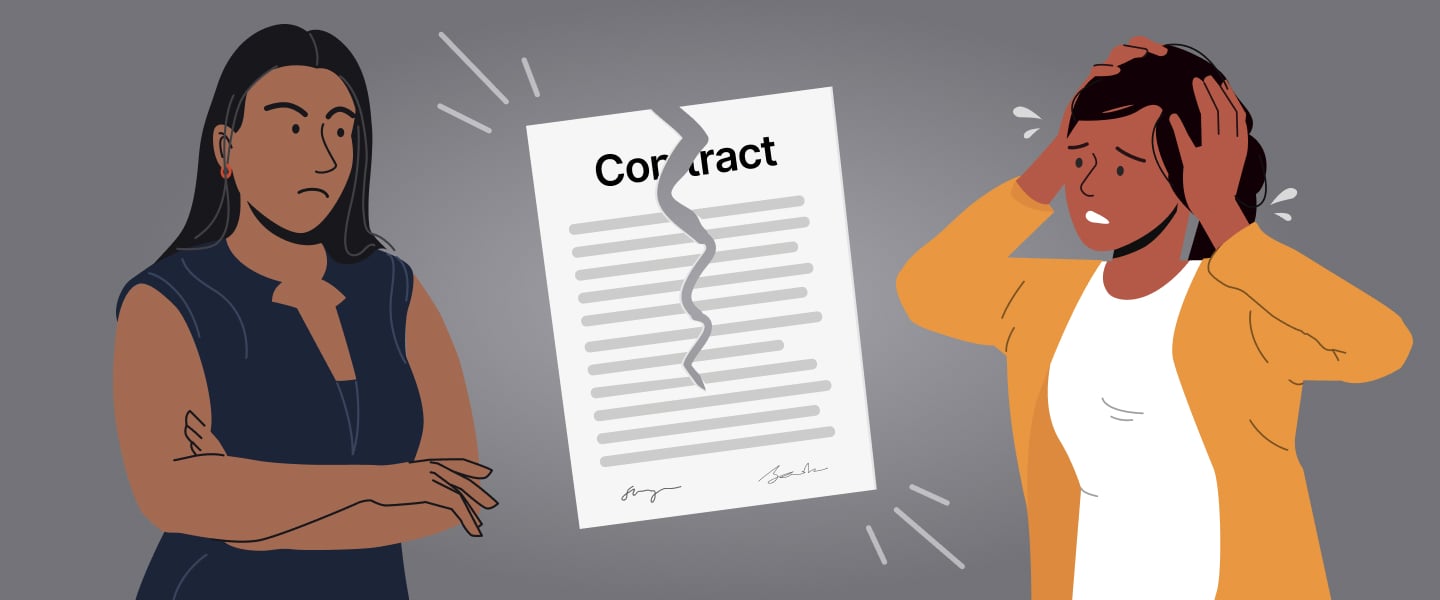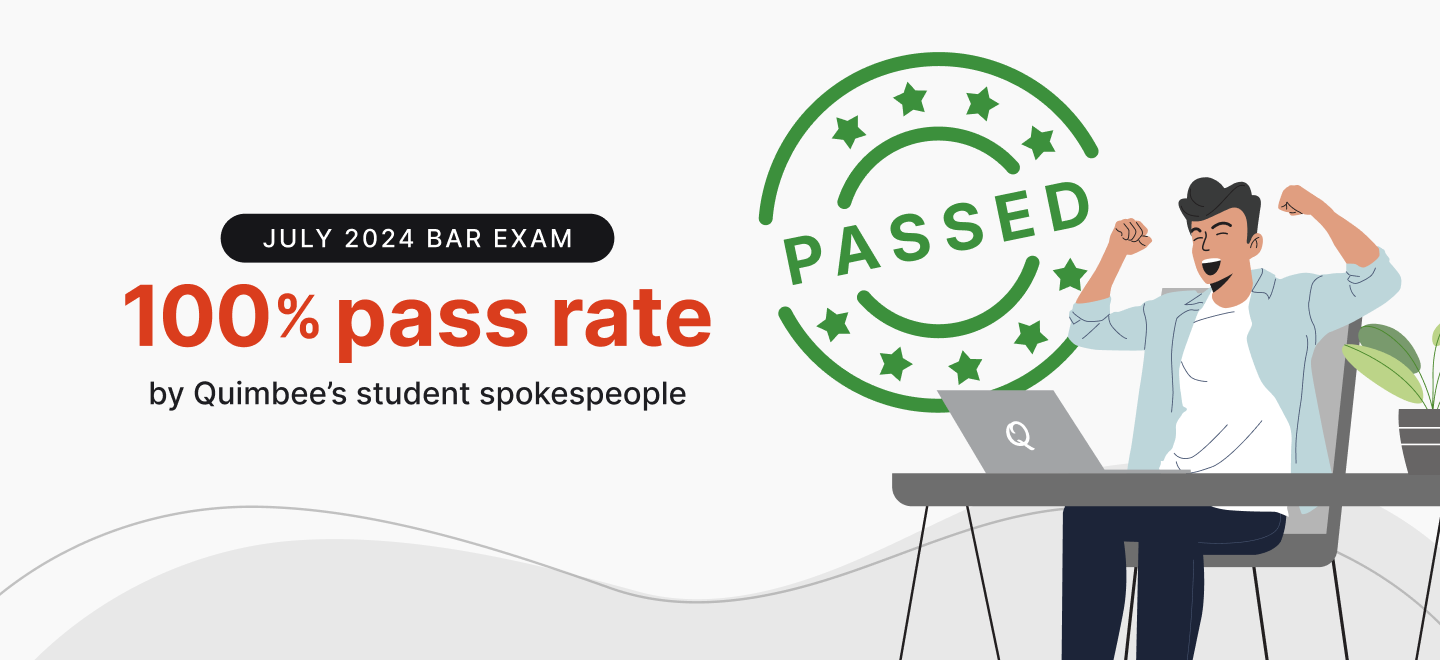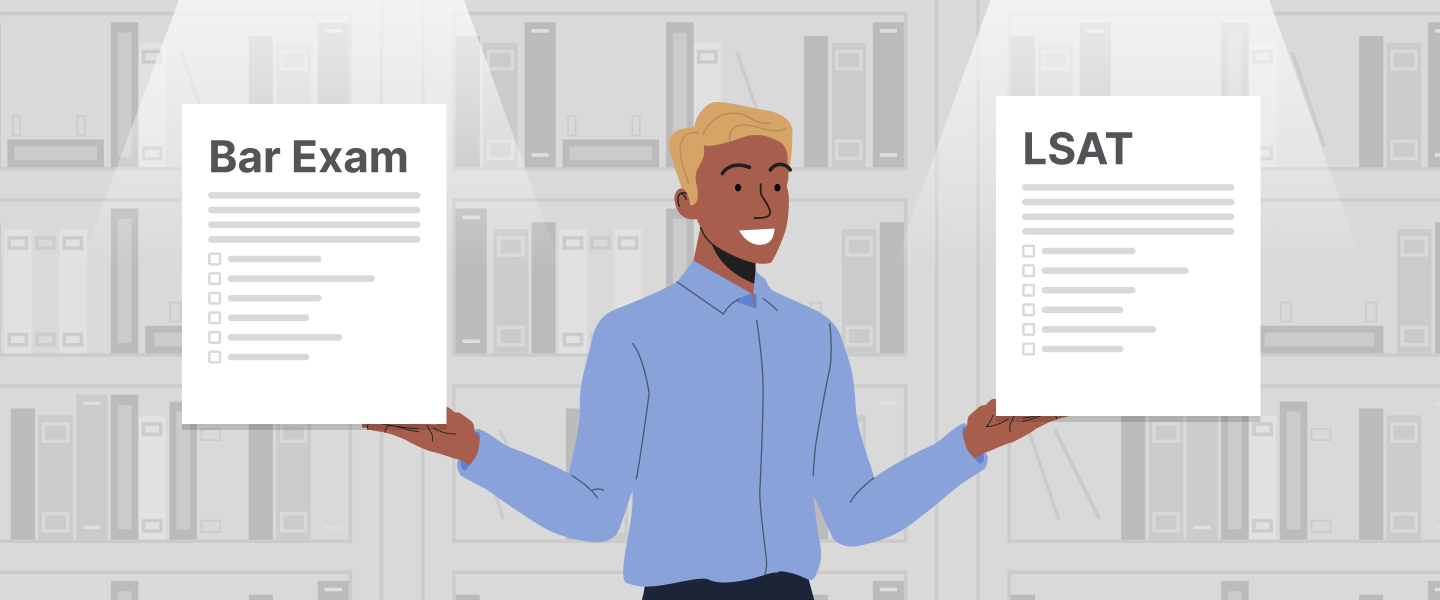Bar Exam Success
Contracts Quick Tip: Anticipatory Repudiation and Demand for Adequate Assurances

Questions about anticipatory repudiation and demands for adequate assurances arise frequently on law-school exams and the bar. Keeping a few basic principles in mind will help you analyze whether one contracting party’s preperformance conduct gives the other party a remedy.
Anticipatory Repudiation
A breach of contract is any failure to render full performance when due. However, this rule does not always force a contracting party to wait until performance is due in order to have a remedy. Rather, both the common law and the Uniform Commercial Code (UCC) give contracting parties a remedy before a breach has occurred for what is called an anticipatory repudiation.
When analyzing a potential anticipatory-repudiation issue, keep 2 questions in mind:
When analyzing a potential anticipatory-repudiation issue, keep 2 questions in mind:
- Did one party clearly and unequivocally communicate, before its performance became due, that it cannot or will not perform?
- Did the repudiating party retract its anticipatory repudiation?
Clear and Unequivocal Communication
An anticipatory repudiation occurs when one party clearly and unequivocally communicates, before that party’s performance has become due, that it is unwilling or unable to perform.
An anticipatory repudiation gives the nonrepudiating party an immediate claim for breach of contract. The nonrepudiating party does not have to wait until the repudiating party’s performance is due in order to terminate the contract and treat it as breached.
The repudiating party’s communication that it cannot or will not perform must be clear and unequivocal. Mere expressions of doubt, uncertainty, inquiries, or requests that the other party consider modifying the contract are not anticipatory repudiations.
Commonly, an anticipatory-repudiation fact pattern might involve one of the contracting parties attempting to back out of the deal or being unable to perform fully in some way.
An anticipatory repudiation gives the nonrepudiating party an immediate claim for breach of contract. The nonrepudiating party does not have to wait until the repudiating party’s performance is due in order to terminate the contract and treat it as breached.
The repudiating party’s communication that it cannot or will not perform must be clear and unequivocal. Mere expressions of doubt, uncertainty, inquiries, or requests that the other party consider modifying the contract are not anticipatory repudiations.
Commonly, an anticipatory-repudiation fact pattern might involve one of the contracting parties attempting to back out of the deal or being unable to perform fully in some way.
Retracting Repudiation
Under certain circumstances, a repudiation can be retracted. If the repudiating party timely retracts, then the nonrepudiating party must proceed as if the repudiation had not occurred. If a repudiation is retracted, then the nonrepudiating party cannot terminate the contract or treat it as breached.
A retraction requires the repudiating party to put the nonrepudiating party on notice that the repudiating party intends to perform after all. The repudiating party may retract by words or conduct. For example, the repudiating party may retract by beginning or resuming its contractual performance.
However, an anticipatory repudiation may not be retracted if, before the retraction, the nonrepudiating party has either materially changed position in reliance on the repudiation or indicated that she considers the repudiation to be final.
Keeping track of the timeline, then, becomes critically important in correctly analyzing a question of anticipatory repudiation. In spotting potential final anticipatory repudiations, keep an eye out for facts indicating that the nonrepudiating party has secured substitute performance. This is one way the nonrepudiating party might materially change position in reliance on the repudiation, and thereby make the repudiation final and nonretractable.
A retraction requires the repudiating party to put the nonrepudiating party on notice that the repudiating party intends to perform after all. The repudiating party may retract by words or conduct. For example, the repudiating party may retract by beginning or resuming its contractual performance.
However, an anticipatory repudiation may not be retracted if, before the retraction, the nonrepudiating party has either materially changed position in reliance on the repudiation or indicated that she considers the repudiation to be final.
Keeping track of the timeline, then, becomes critically important in correctly analyzing a question of anticipatory repudiation. In spotting potential final anticipatory repudiations, keep an eye out for facts indicating that the nonrepudiating party has secured substitute performance. This is one way the nonrepudiating party might materially change position in reliance on the repudiation, and thereby make the repudiation final and nonretractable.
Demand for Adequate Assurances
Recall that an anticipatory repudiation requires a clear and unequivocal communication. Mere uncertainty about performance is not an anticipatory repudiation. However, the law gives an uncertain party some tools short of terminating the contract and treating it as breached.
Under both the common law and the UCC, when a party has reasonable grounds to believe that the other party will breach the contract, the party may suspend her own contractual performance and demand adequate assurances that performance will be forthcoming. Reasonable grounds might come, for example, from the other party’s words or conduct that he is not certain he can perform or that his performance might be delayed past a contractual due date.
Issues regarding demands for adequate assurances commonly arise on facts that do not meet the clear and unequivocal standard required for an anticipatory repudiation. If you find yourself concluding that a party has not anticipatorily repudiated a contract, analyze further to see whether that party’s conduct has given the other contracting party reasonable grounds to believe a breach is forthcoming.
In general, assurances are adequate if they would prompt a reasonable person in the aggrieved party’s position to believe that the other party will perform.
If the other party does not provide adequate assurances within a reasonable time, then the aggrieved party may proceed as though there had been an anticipatory repudiation.
From your first day of law school to your final day of practice, Quimbee is here to help you succeed. Get up to speed on tough contracts concepts with essential video lessons, essay practice exams, and multiple-choice questions. Check out Quimbee Bar Review+ to explore the features students across the country rely on to help them pass the bar exam on the first attempt. To learn more, book a free, 30-minute course tour with a bar review director.
Under both the common law and the UCC, when a party has reasonable grounds to believe that the other party will breach the contract, the party may suspend her own contractual performance and demand adequate assurances that performance will be forthcoming. Reasonable grounds might come, for example, from the other party’s words or conduct that he is not certain he can perform or that his performance might be delayed past a contractual due date.
Issues regarding demands for adequate assurances commonly arise on facts that do not meet the clear and unequivocal standard required for an anticipatory repudiation. If you find yourself concluding that a party has not anticipatorily repudiated a contract, analyze further to see whether that party’s conduct has given the other contracting party reasonable grounds to believe a breach is forthcoming.
In general, assurances are adequate if they would prompt a reasonable person in the aggrieved party’s position to believe that the other party will perform.
If the other party does not provide adequate assurances within a reasonable time, then the aggrieved party may proceed as though there had been an anticipatory repudiation.
From your first day of law school to your final day of practice, Quimbee is here to help you succeed. Get up to speed on tough contracts concepts with essential video lessons, essay practice exams, and multiple-choice questions. Check out Quimbee Bar Review+ to explore the features students across the country rely on to help them pass the bar exam on the first attempt. To learn more, book a free, 30-minute course tour with a bar review director.







